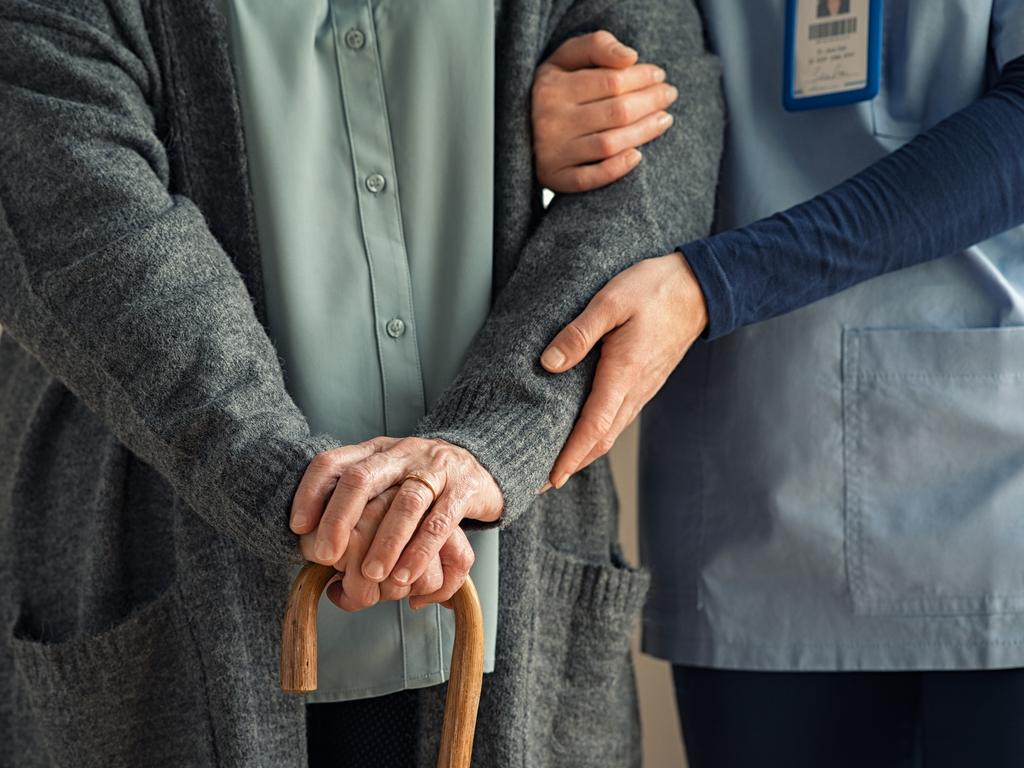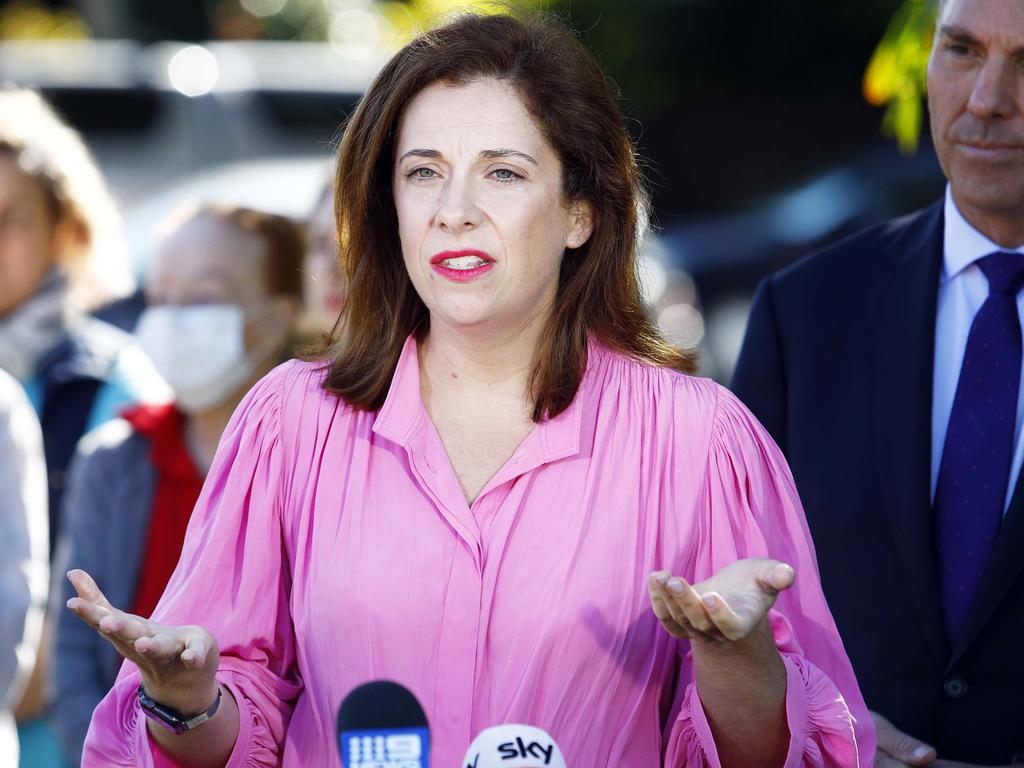Rising star Anika Wells’ aged-care Labor of love
At 37, Anika Wells is Anthony Albanese’s youngest minister, entrusted with fixing a broken system. Having worked in aged care herself, she’s uniquely placed.
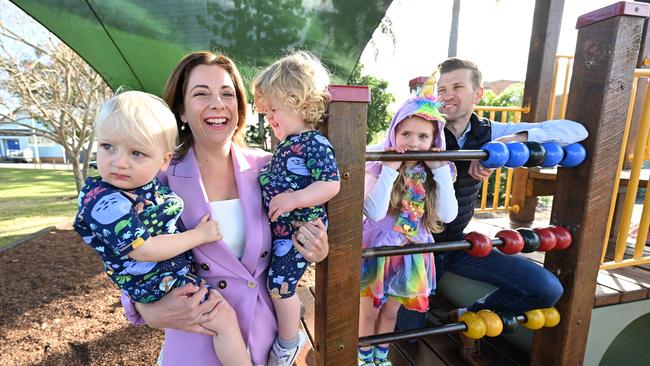
What do the nation’s $30bn annual aged-care budget and The Very Hungry Caterpillar have in common? The answer is not much, unless you’re the nation’s Aged Care Minister Anika Wells.
It was Book Week Parade Day at the Brisbane childcare centre of Wells’s twin boys Oshy and Dash earlier this week, and the 37-year-old couldn’t resist a dress up. One a caterpillar, the other a butterfly.
The previous year, before Wells’s rapid rise into the new Labor government’s ministerial ranks, the twins and their older sister, Celeste, now in prep, were characters from another kids’ classic, Where The Wild Things Are.
Then an opposition backbencher in her first term after winning Wayne Swan’s old seat of Lilley, the Maurice Sendak era was less hectic for Wells. With Eric Carle she has metamorphosed into one of Anthony Albanese’s higher-profile ministers.
After hearing the horrors uncovered during the aged care royal commission, the Prime Minister pointedly pledged to fix the broken sector as a key plank of his election campaign, and on winning entrusted Wells with the job.
Coming up to 100 days in charge of one of the government’s biggest-spending portfolios, she is bristling with ideas, and immediately challenges the notion that implementing the commission’s 148 recommendations is an ambitious enough reform agenda.
“While the previous government only managed to implement nine of the commission’s recommendations since the commission reported, we’ve already brought in 19 since May,” Wells tells Inquirer.
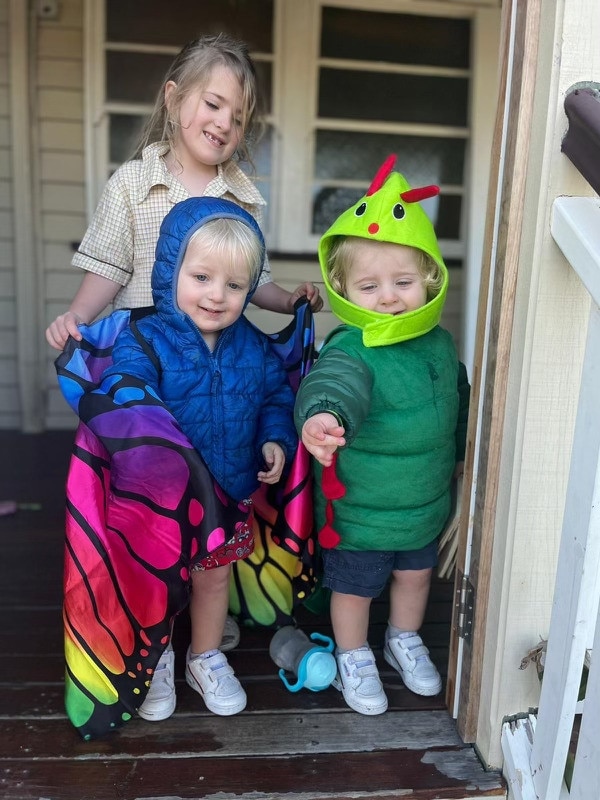
“But more can be done. At the moment, the system of aged care is designed around giving taxpayers’ money to providers to deliver services. I think we can be more innovative than that. Who are the thought leaders internationally? Which countries are doing aged care well? Globally, what are the exciting models of care?
“I have a real eye on getting aged-care support in our homes right,” she says, when asked about her top order of priority.
Wells is Albanese’s youngest minister, coming into his team despite not serving as a shadow during the last Morrison administration. But with the Health and Aged Care portfolio’s senior minister, Mark Butler, responsible for the nation’s Covid response, Wells has been given broader scope on aged care.
Under the Coalition, it was the reverse, with senior minister Greg Hunt having to step in and take effective carriage of aged care during the Covid pandemic after a series of blunders from Richard Colbeck.
So who is Wells? With her father an accountant and her mother an administrator at an aged-care home, she is not steeped in a Kill the Tories family tradition.
“I remember going to a polling booth at one election and asking my mum how she was going to vote,” Wells recalls. “That was not the sort of question someone asked, she quickly told me.
“So I’m not sure. I think they may have gone back and forth a bit, living in a suburban marginal seat, but I do remember dad loving Paul Keating in some of those question time performances.”
Wells says she was “one of those kids who was always interested”, winning public speaking awards in year 3, serving on student councils and being captain of both Robertson Primary School and her high school, Moreton Bay College.
But it was in the year after high school, when she had a year in France honing her French on a school exchange in a small village called St Gilles Croix de Vie, that her political colours deepened.
“It was a year when teachers in France were on rolling strikes, but the year 12 teachers would go in to work unpaid so that their students wouldn’t be disadvantaged in later life,” she says.
Wells returned to Australia and studied arts-law at Griffith University, hoping to parlay her qualifications and her fluency in French into a diplomatic career.
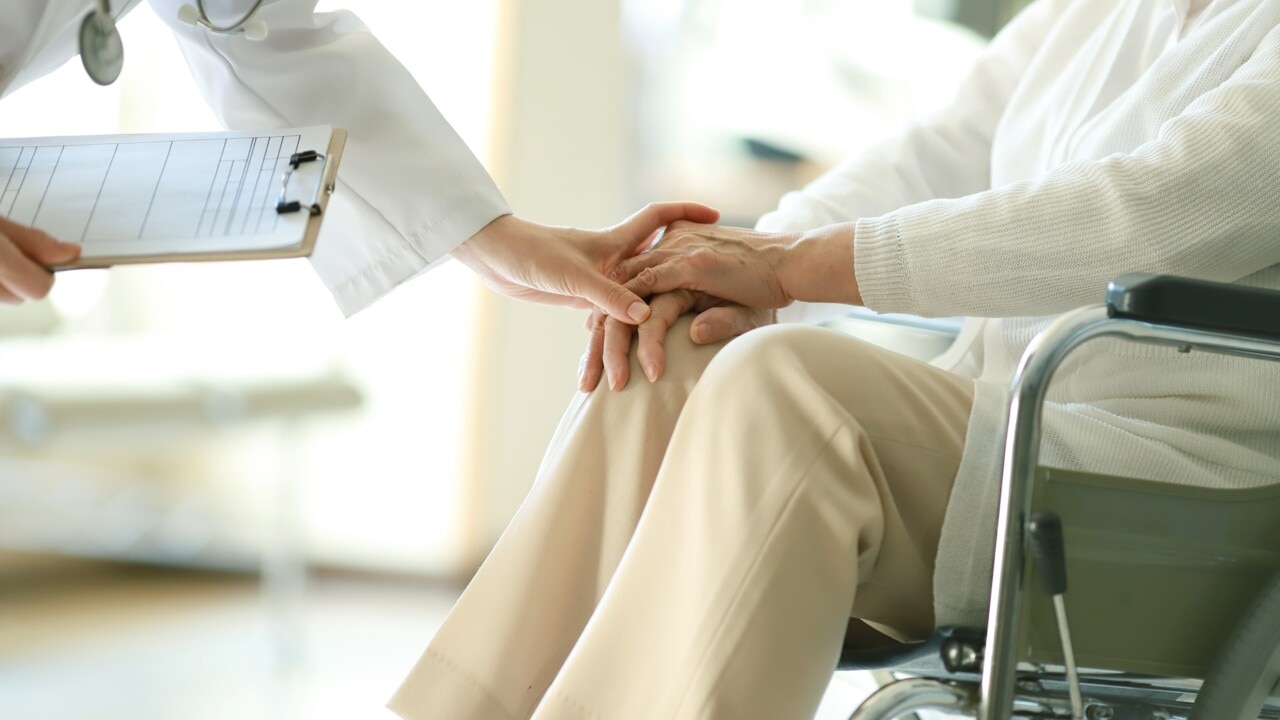
“As a student and involved in student politics in 2006 I went to a Labor campaign launch for the seat of Petrie. Bill Shorten was there as head of the AWU (Australian Workers Union) and came up to a group of us at the event, asking what we hoped to do.
“I said I hoped to be a diplomat, and he looked at me and said ‘No, you want to be a politician’. I said ‘No I don’t’. He said ‘Let’s wait and see’. Twelve years later he was the ALP leader, and I was the candidate for Lilley.”
Another formative element of Wells’s early life was her time working in her mother’s residential aged-care facility.
“I had the 3.30pm to 8pm shift, doing afternoon teas and dinner. I used to take the afternoon tea to each of the residents. You’d see the ones who had family members visit all the time and the ones who never saw anyone. You’d see the ones who went for walks and found the sun, and those who stayed in their beds all day. You see the best of it and the worst of it and it has stayed with me.”
It’s a long way from student politics and Young Labor to running for a federal seat, but when Wayne Swan announced his retirement from politics, Wells, by then in practice as a solicitor with Maurice Blackburn for five years, and after a similar stint as a staffer for former Labor minister Joe Ludwig, sought preselection for Lilley.
Despite being warned about the gruelling process of running for preselection, then for a seat, then if you get in navigating the rigours of federal politics, a number of things coincided in her life that drove her to nominating.
“The first was falling pregnant with Celeste. I had a difficult pregnancy, and was in and out of hospital throughout with an auto-immune disease. I’d always taken my health for granted, I’d initiated a park run in Brisbane, but this experience allowed me to see up close how the health system ran.
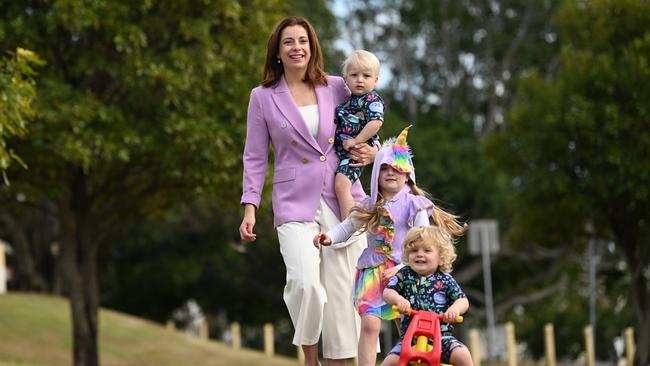
“Celeste was born early, and it coincided with Donald Trump’s inauguration in early 2017. There were these women in the US marching in protest, and when asked why they said they had just assumed Hillary Clinton would win and didn’t do anything to support the campaign. They were marching as an act of atonement.
“At that moment, I simply decided not to take things for granted,” Wells says.
Her time as an opposition MP and the early days of ministerial responsibility have been an eye opener when it comes to aged care, Wells says.
“I’ve made visits to quite a few aged-care facilities during my time in opposition and I was struck by how little things had changed since I was serving those afternoon teas. Other sectors are driven by innovation and the pursuit of excellence and I don’t see any reason why the aged-care sector shouldn’t aspire to that.”
Like any parent of young children who holds a big job keeping them away from home, Wells thinks about how the inevitable absences will play out. She has a full-time working partner and, like so many families, relies on a combination of formal and informal care to get through the week.
“I’ve asked children of former ministers how it affected them growing up. They all say they didn’t remember missing their parent not being there, but did remember the times they made a special effort to be there.
“The day I was sworn in as minister in Canberra, Celeste had won student of the week at her prep class. I moved heaven and earth to be back to see the presentation,” she says.
Wells’s first 100 days as minister is fast approaching. So far she has ticked the right boxes with stakeholders, and been a sure-footed performer in early question time skirmishes. But her portfolio will only become more expensive to run and more politically charged as more of the nation’s baby boomers reach the age where they need, and expect, high-standard support.
She notes the first piece of legislation the Albanese government introduced to parliament and had passed was an aged-care bill, and the government’s appetite to fix the sector is far from done.
But challenges lie ahead, notably to the federal budget when the Fair Work Commission sets what will be a hefty pay increase to more than 300,000 aged-care workers. The government has said it will fund any pay rise recommended, at an estimated additional cost of $3bn a year.
“I feel like the sector is feeling bruised, they are in a defensive crouch because of the difficulty of the past few years,” Wells says.
“It’s time for a new vision for aged care, one built on dignity, accountability and sustainability.
“You’ll see our government setting that out, then delivering on it, over the coming term.”


